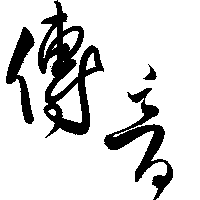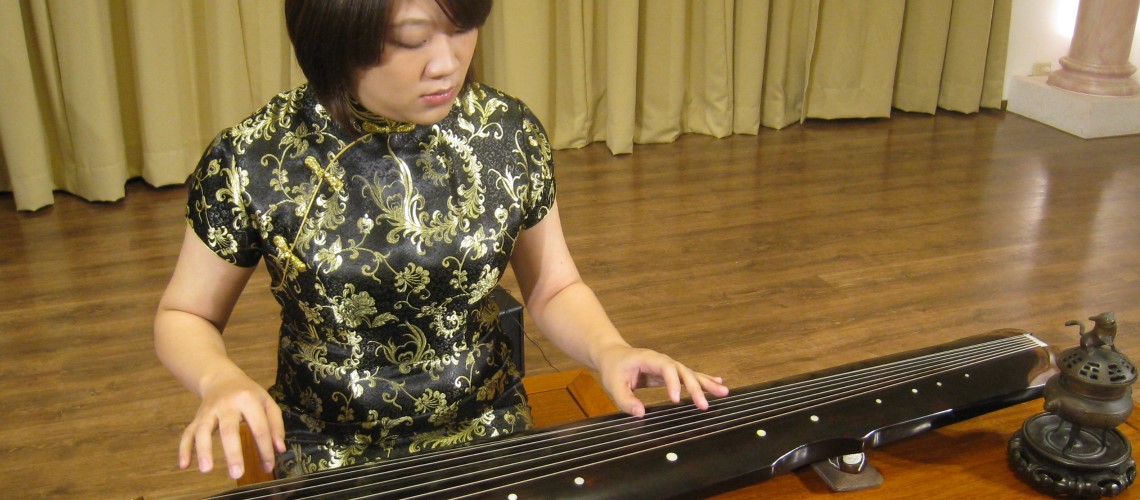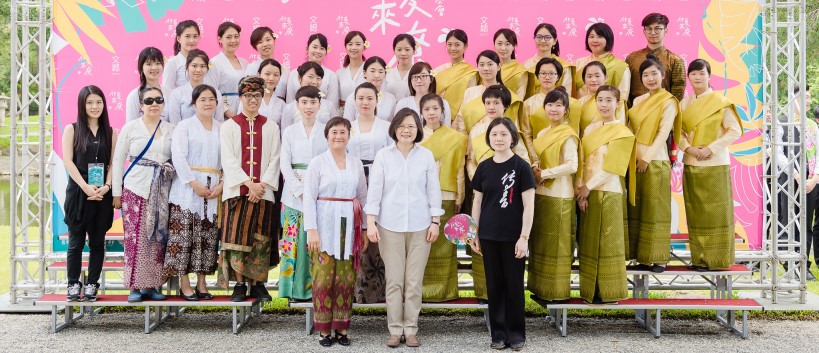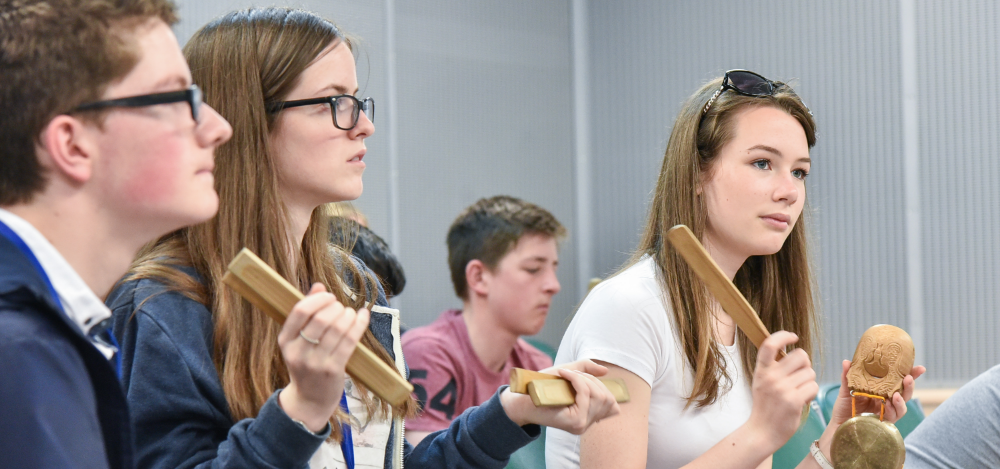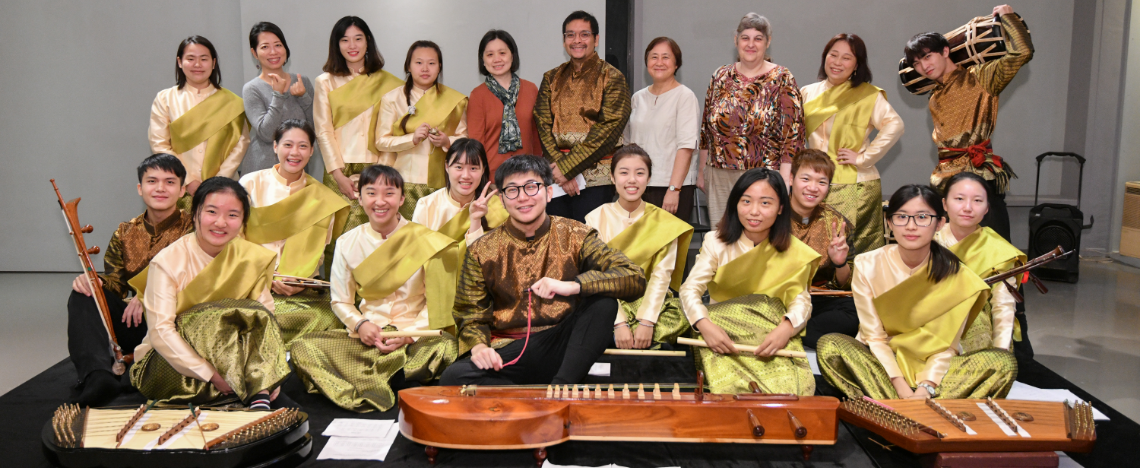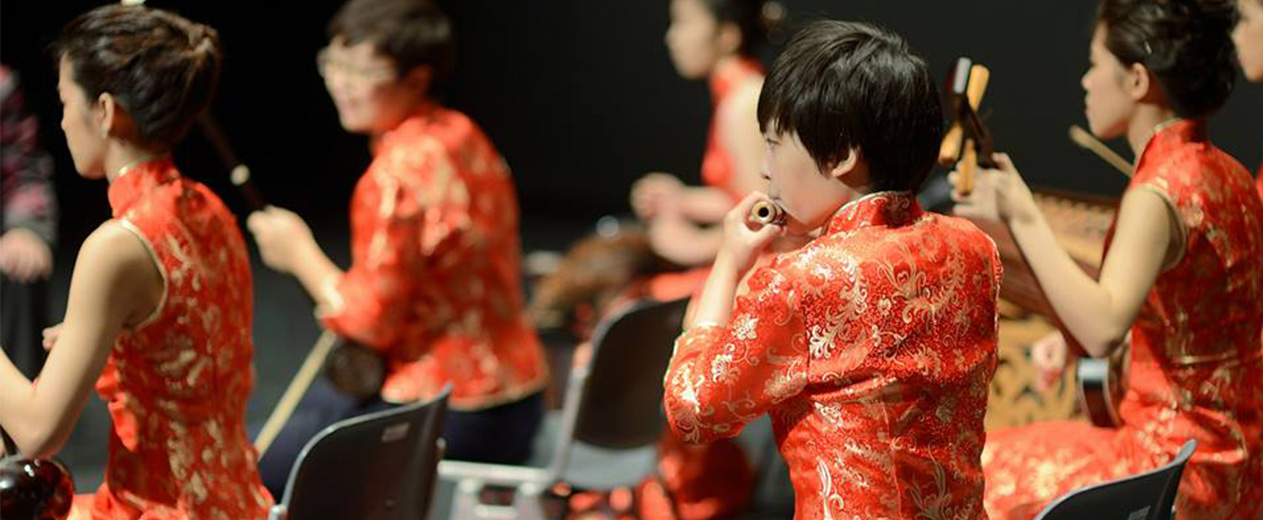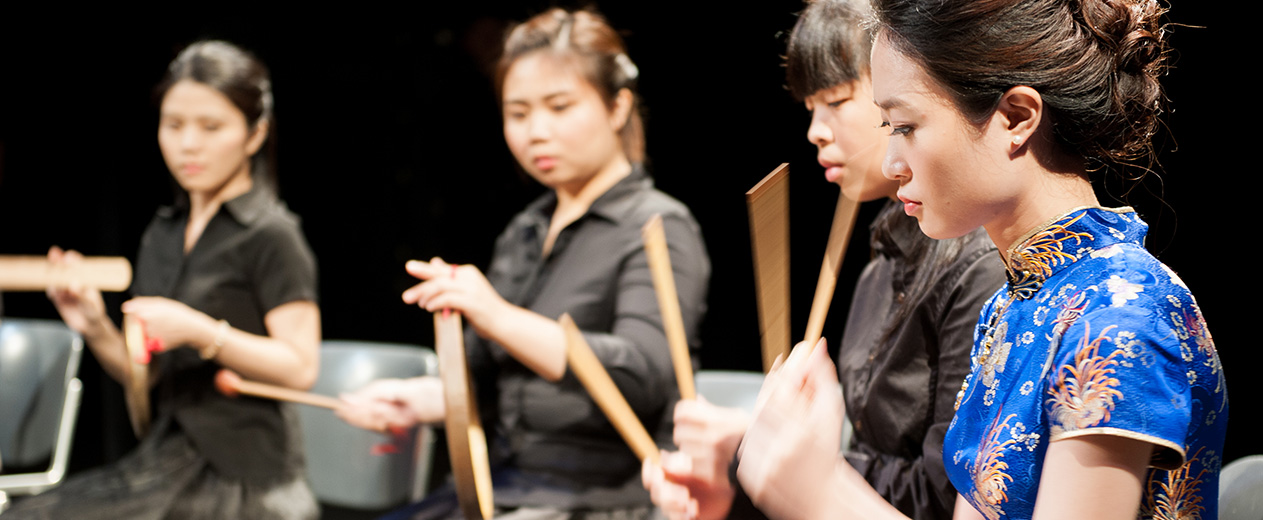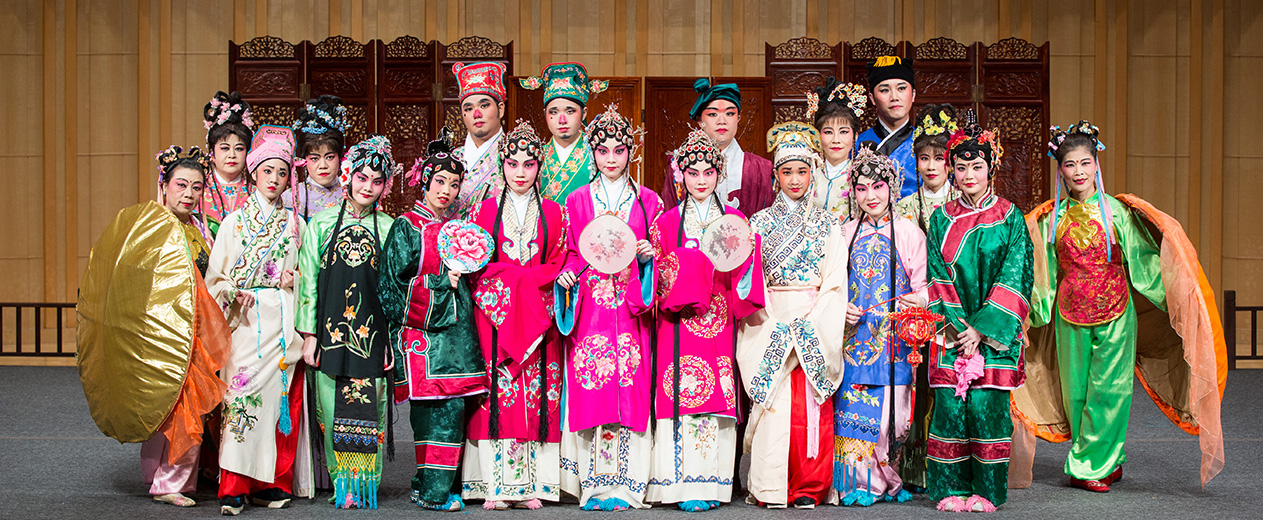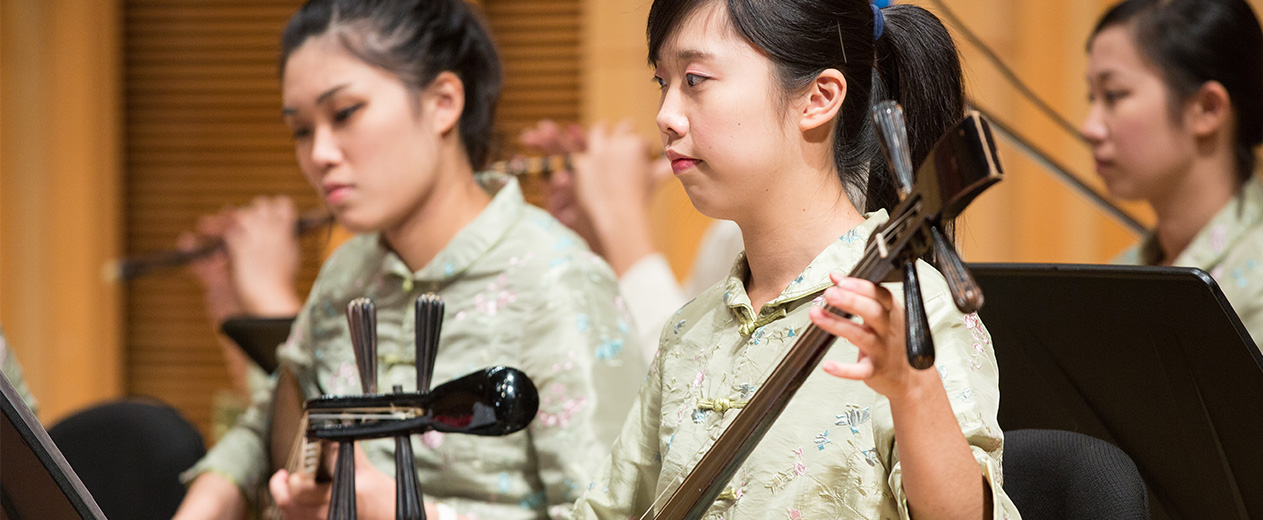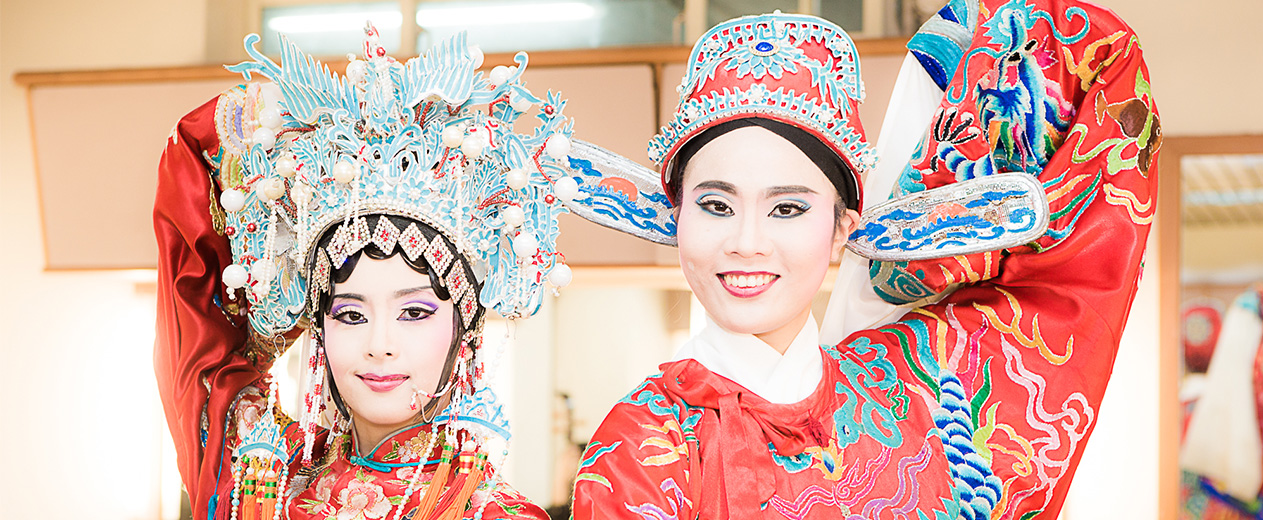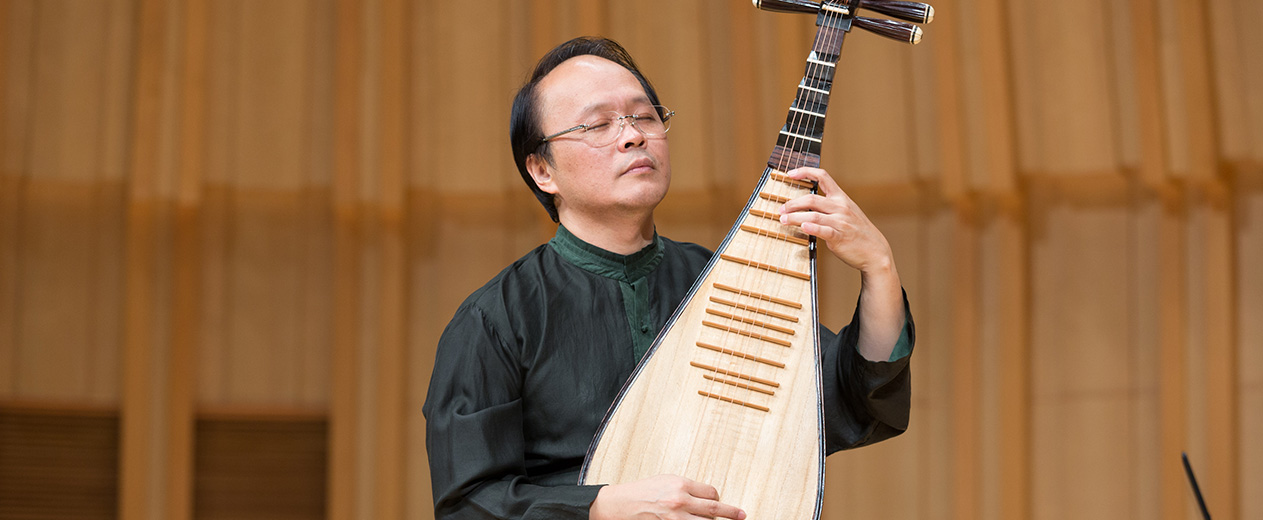View count:
27097
About us
Introduction to the Department of Traditional Music,School of Music, Taipei National University of the Arts
The Department of Traditional Music was founded in 1995 to serve the needs of heritage, scholarship, development and education of traditional music in Taiwan. The Department offers undergraduate and graduate (M.A. and M.F.A.) programs. The undergraduate studies have a four-year curriculum in which students may choose to major in Chhin (Qin), Phi-pha (Pipa), Lâm-koán (Nanguan), Pak-koán (Beiguan) or Music Theory. Among these fields of studies, the Chhin and Phi-pha are representative instruments of traditional Chinese music with rich repertoire requiring deep artistry; Lâm-koán and Pak-koán are the most characteristic Taiwanese traditional music; the Theory major, added in 1998, enforces the studies of traditional music.
The programs of the Department of Traditional Music aim to breed the spirit of versatility associated with traditional musicians while simultaneously coordinating this with modern and professional musical educational training. Students learn those instrumental techniques associated with their majors as well as theories and other related instruments or styles. In order to cultivate artists who have a profound understanding, significant skills of traditional music culture and have a broad vision, all students are required to study history and theory of traditional music, western music and Asian music.
Founded in 2007, the Traditional Music Master’s Program focuses on the major traditional music cultures of Taiwan and integrates ideology of internationalization and modernization. It aims to deepen and strengthen skills and knowledge for traditional music and research in order to nurture qualified performers, researchers and educators for traditional music. It offers two aspects: performance and theory. The performance section offers Chhin, Phi-pha, Lâm-koán, and Pak-koán while the theory section offers Traditional Theatre Music and Music Theory majors.
Members of the faculty are renowned scholars and musicians. In addition, the Department has recruited many experienced and outstanding folk artists to teach the younger generation about traditional music. These musicians, coming from various locations around Taiwan, wholeheartedly pass their heritage onto the students.
Concerning the learning resources, the TNUA library has offered its students a rich collection of books and audio/video/electronic resources, its professional management, and services. In addition, the special collections of historical recordings, manuscripts and old instruments of Pak-koán, and Asian musical instruments in the Department of Traditional Music also provide great resources for study.
Department of Traditional Music offers B.F.A. and M.F.A. degree programs for five majors: two most representative classical music genres of Taiwan - Nanguan and Beiguan, two important and historical solo instrument of China - Guchin and Pipa, and one academic program studying the above and more related areas - Music Theory. The purpose of this department includes preservation, heritage, studying and development of traditional music, combining traditional ways of teaching with higher education, which has cultivated high quality of traditional musicians with a fusion of classical and modern spirit. To reflect Taiwan’s environment as an immigrant society, also to fulfill the need of an international perspective, its programs have extended to Asian classical music. In addition to inherit and develop local tradition, Department of Traditional Music also applies and serves in contemporary society. It also aims to train new generations of professional Taiwan musicians with international vision through cross-cultural music education.
国立台北芸術大学音楽学院伝統音楽学系
国立台北芸術大学音楽学院伝統音楽学系は、台湾伝統音楽の伝承を目的に設立された我が国唯一の音楽学系である。設立当初から、中国音楽の最も代表的な独奏楽器である古琴および琵琶の専攻科のほか、台湾の文化と密接な関係を持ち、広く庶民の日常生活に浸透している台湾南管楽と北管楽の専攻科を有する。以来、台湾伝統音楽の研究・伝承・発展を目標とし、優れた研究者や古琴・琵琶演奏者のほか、台湾各地かで長年に渡り台湾伝統音楽の発展・伝承に力を注いでこられた無形文化財の保持者たちを教員として迎え、教育形態を確立し、伝統音楽の次世代への伝承に努めてきた。
本学科は、1995年に学部を創設し、2007年には修士課程を設けた。学部には「古琴」・「琵琶」・「南管楽」・「北管楽」・「音楽理論」の五つの専攻が設けられ、伝統音楽の創造・表現・研究に必要な能力の養成、社会的要請に応える人材の育成を目的として掲げている。授業科目では、専門性の高い各領域の実技面の授業のほか、その専門性の深化や応用に関連した諸分野、例えば、台湾音楽・中国音楽への理解に繋がる「工尺譜視唱」・「中国音楽史」・「台湾音楽史」・「中国音楽美学」、西洋音楽への理解に繋がる「楽式論」・「西洋音楽史」・「西洋音楽理論」、さらにアジア音楽への理解に繋がる「アジア音楽」といった授業科目を設置している。これらにより、伝統音楽を軸にしつつ、他の音楽文化とも関係を深め、我が国の音楽文化の創造的な発展の道を主導的に切り開く人材の育成を図っている。
修士課程には理論専攻と演奏専攻が設けられている。理論専攻は「音楽理論」と「伝統戲曲」から構成され、演奏専攻は「古琴」・「琵琶」・「南管楽」・「北管楽」から構成されている。高度に専門的かつ広範な視野に立ち、自国文化の伝承と発展を自覚しつつ、現代的また国際的に伝統音楽を発信していく能力を有する、次世代の音楽文化を担う者の育成を目標としている。学部生以上に質の高い表現力と技術を持ち、自主的に演奏活動に取り組んでいく演奏家、台湾伝統音楽への理解およびその伝承・発展に繋がる専門研究を展開できる研究者を育成するための授業や研究指導が行われている。
その他、大学図書館は、音楽関連の中国語・日本語・英語の図書・雑誌・レコード・CD・映像資料・電子書が大量に所蔵されている。本学系も、北管楽の古楽器・古文物・写本、そして南北管の実践・伝承に長年に携わってきた無形文化財の保持者たちの教学映像を保存し、日本・韓国・タイ・ミャンマー・ベトナム・インドネシア・フィリピンなどアジア諸国の伝統楽器を積極的に収集している。こうした形で、本学系は、授業内容の充実のみならず、設備の充実にも力を入れ、国際的視野のもと、伝統音楽の伝承・発展を担う演奏家・研究者の育成を図り、これを通して台湾の音楽教育・音楽文化の発展に寄与している。


